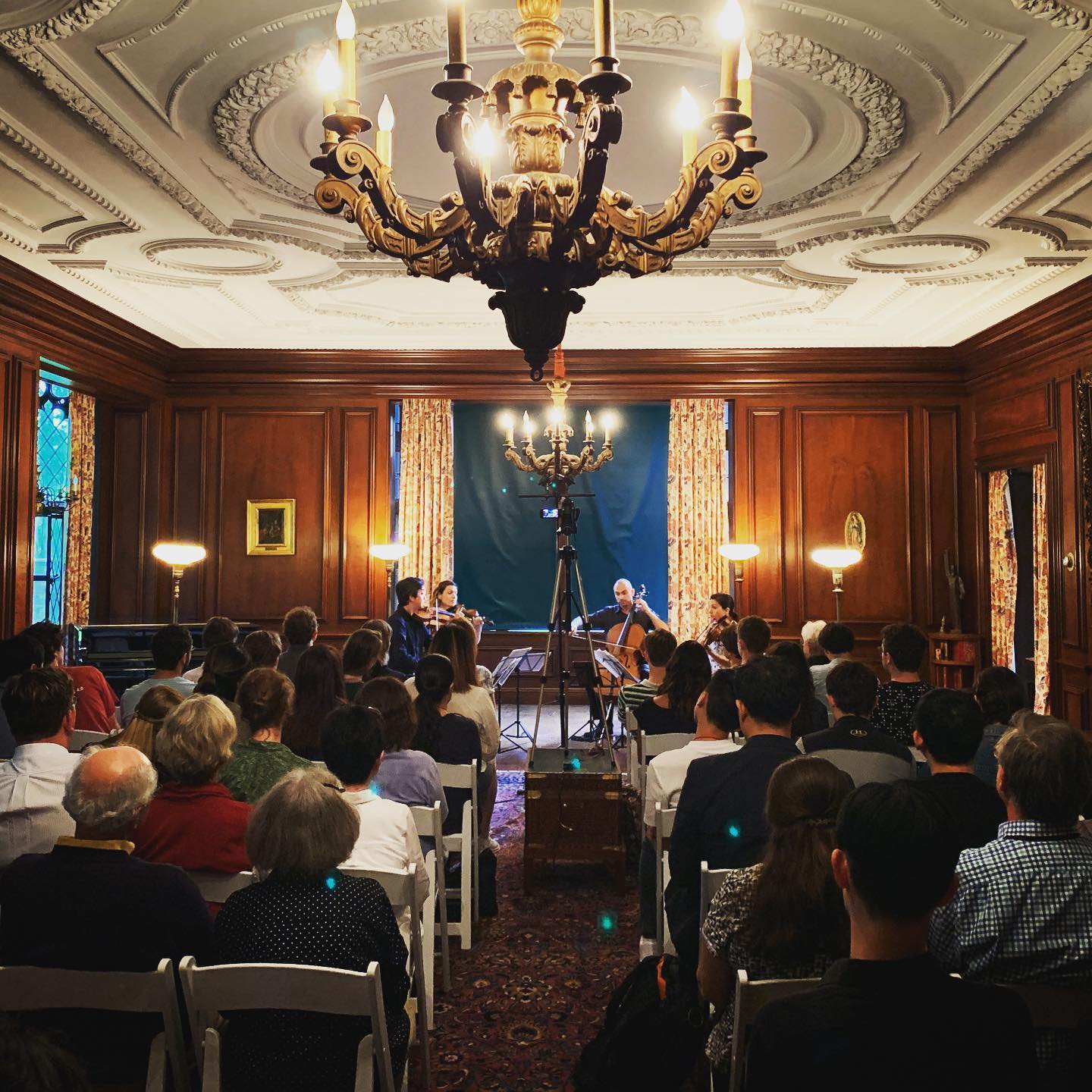by Daniel Hathaway

Ironically, though Rodolphe Kreutzer is best known for that dedication, he never played Beethoven’s piece. His name lives on chiefly in Tolstoy’s novella and Janáček’s quartet — which does make one subtle reference to the Beethoven work in the canonic frenzy that bursts out in the third movement, a gesture oddly derived from the calm second theme of the violin sonata.
Performing in the music room of Tudor House at Gilmour Academy, the Jupiter — violinists Nelson Lee and Meg Freivogel, violist Liz Freivogel, and cellist Daniel McDonough — immediately seized the attention of the nearly full house and held it closely for half an hour’s worth of bipolar drama. Each of the players took a turn in the psychotic outbursts that suddenly interrupt attempts at establishing musical narratives, but collectively the quartet achieved a warm, engaging tone despite the composer’s wild mood swings.
The Janáček was listed second in the printed program, but McDonough told the audience afterward that they decided to switch it with Puccini’s Crisantemi “because we thought it was strange to play an elegy before the murder.” Indeed, “Chrysanthemums” was cathartic, and its rich, chromatic harmonies — beautifully realized by the Jupiter — provided a fine transition between the two Czech works on the program.
Dvořák’s G-Major Quartet, Op. 106 ended the evening with charm and exuberance. Playing with rhythmic vitality and infectious humor, the Jupiter caught the essence of the Bohemian composer’s musical personality. Every now and then, the players turned their vibrato down to good effect, a technique they might have applied to more of the Adagio movement for the sake of variety. Dvořák is famous for writing riotous codas, and the players brought both the third and fourth movements to brilliant conclusions. ENCORE’s third season is off to an impressive start.
Published on ClevelandClassical.com June 11, 2019.
Click here for a printable copy of this article



